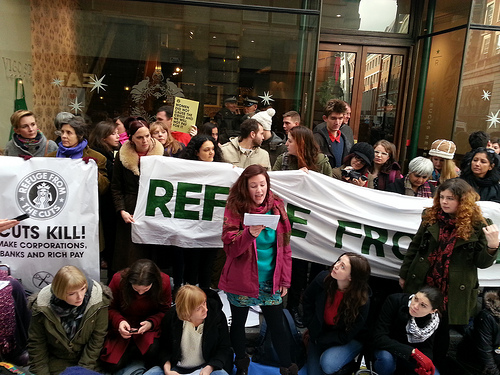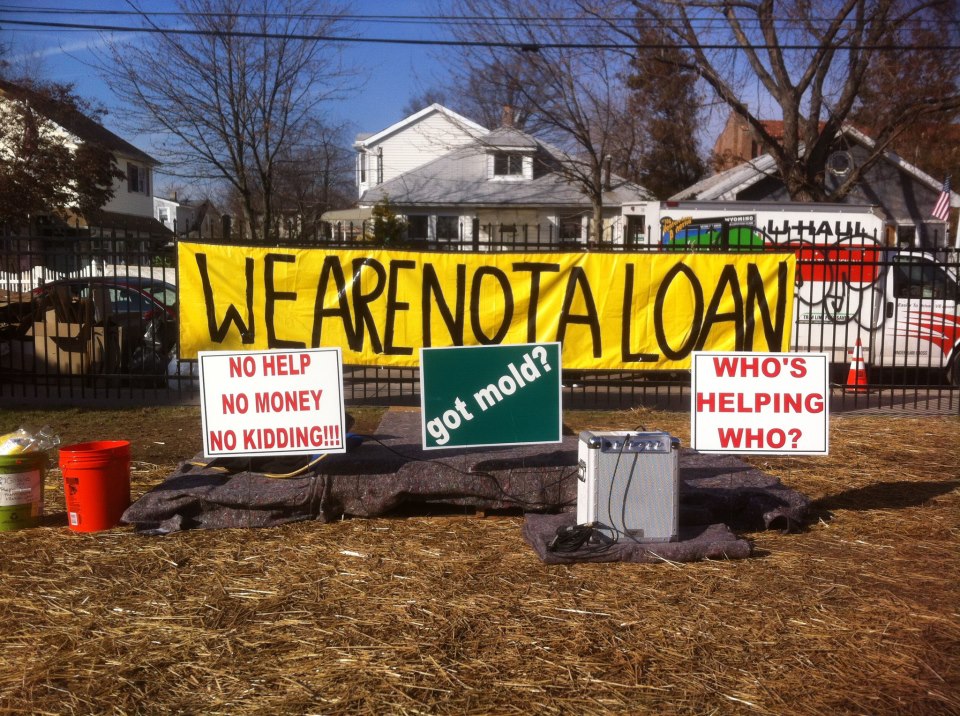Even before I heard about the massacre in Connecticut, before I was even technically in the country, I was reminded of the intense peculiarities of the U.S. In the Customs area of American Airlines, every kind of traveler was greeted with an immense slow-moving queue. A tall, white US citizen began remonstrating with American Airlines staff about the lack of energy in helping people. They called in Customs officers as back up and for a moment it looked as if he would be arrested. In fact, after an explanation, nothing happened.
When I finally got to the front, the Customs person I spoke to pointed out that people will have gone home blaming “big government” for that. In fact, it’s American Airlines to blame for pushing 500 people into retirement and not replacing them as part of their “restructuring.” And then he added that he could get fired for saying that. So to keep airline debt-holders happy, thousands of tired travelers are inconvenienced, miss connections, lose luggage–and added bonus, the government gets the blame.
Then, of course, we heard about the shooting. It’s important to repeat, yet again, that these don’t happen in Europe because they don’t allow people access to guns. When we see it reported that support for “gun control” has gone down, let’s remember what this really means in the condensed meme that it represents. “Gun control” means “the African-American socialist president is going to take away your guns as part of his plan to institute a United Nations-run totalitarian society.” Gun sales shot up after Obama’s elections in both 2004 and 2008.
It’s no accident that nearly every shooter in these events is a white male. That’s not to say that the shooting itself was a racialized event but that the fact that white men demand to make it absurdly easy for people like them to get guns has a racialized motive. And then the shooting of Congresswoman Giffords and the “Batman” shooting in Colorado did involve political motives.
I’ve had many occasions over the past year to write about people with unmet needs in this society. Many found their way to the occupations, when they were active, both here and in the U.K. Like most of them, whatever this young man’s issues were, he clearly did not get the help he needed. And he far more clearly received the message that this violent society sends most loudly of all, that violence is a good way to make a point, to resolve issues and to claim attention. And that it’s ok to use that violence on people weaker than yourself, whether women, children, the endebted, the homeless.
In order to make any kind of move away from the culture of violence, it’s obvious that there needs to be limits set on the possibilities that one person can attack another. But that is just a small start. The health care system needs to be able to help all those with needs. That requires more public revenue.
In Europe, they have ideas about that too. UK Uncut has shamed Starbucks into making some restitution for their tax avoidance by making these kinds of connections:
Sarah Greene, a UK Uncut activist said: “It is an outrage that the government continues to choose to let multinationals like Starbucks dodge millions in tax while cutting vital services like refuges, creches and rape crisis centres. It does not have to be this way.”
The politics of austerity is also a politics of violence. As the Greek Debt Audit Campaign has put it:
The link between debt, austerity and privatisation is clear. We consider it urgent to end the growing impoverishment of the people and ensure that all can cover their basic needs, as reflected in the Universal Declaration of Human Rights: housing, food, healthcare, education, employment and social services.
One way to summarize these rights is the formula “the right to existence” that comes down to us from anti-slavery organizing. A right to existence includes the right not to be subjected to physical or economic violence.
When I turned on my phone for the first time, one of the messages I received was from the Small Business Administration because I registered with FEMA after Sandy. It reminded me that the SBA loans were the “primary” form of government “assistance” for the disaster and that the deadline for applications was December 31, 2012. More debt, with deadlines, while people are still clearing up and finding out what their situation really is.
That’s the last official day of this project. Obviously, it won’t be over on that date.


